Last week, I stayed at the Hotel Allegro in Chicago. My stay was OK, maybe a C minus. The hotel’s under construction, the wi-fi was sketchy, you have to leave the hotel to go to its 312 Chicago restaurant, and the room was really small. I might stay there again, but probably not.
Why am I telling you all this? Because my post-stay experience as an Allegro customer presents an object lesson in how not to do multichannel customer service. Here’s what happened.
A couple of days after my stay, I needed an itemized folio to prepare an expense report for my client. I assumed I could choose a channel. I could call, email, or tweet the Allegro, but when I looked at Hotel Allegro’s Contact Us page, email was the featured option for getting help.
I used the webform to send the following email:
Then, I waited for a reply. After about three hours, I became impatient–and I am not proud of this–because I wanted that folio right away. I was eager to cross the expense report off my to-do list, so I called the hotel to request the folio. I became a multichannel customer in a multichannel customer service world. When I called, the very helpful man at the front desk of the hotel in Chicago agreed to email me the folio, and he did it. Right away.Cool!
Here’s the email I received with the folio attached:
Yep, that’s the entire email. It has no subject line, no content, no signature, and the attached folio has no name. I got some fast service, but that’s not feel-good service. Hotel Allegro, which gathered plenty of information about me during this interaction (and during my stay) squandered every opportunity to build rapport with me in this email.
I was having a very uneven multichannel customer service experience:
- I’d sent an email via webform, but I wasn’t patient enough to wait even three hours for a response. (That’s on me…)
- I’d called the hotel and had a great experience on the phone.
- I’d receive an email from the hotel, which completed a transaction but didn’t help me build any bond with the hotel or the brand (Kimpton).
Here’s the folio I received from the front desk staff:
But this tale has one more chapter. About an hour later, I received a response to my webform email from a Kimpton VIP Reservations Agent. She informed me that she could not send me a complete folio showing room and restaurant charges because I’d booked with Orbitz. Ahem. There’s a couple of problems with her reply: I’d already received my complete folio (Thank you, Front Desk Guy), and I hadn’t booked the room with Orbitz! The Reservation Agent’s information was wrong.
Here’s the email from the Kimpton Reservations Agent:
And here’s the folio she sent me. Not very useful. It would have done nothing to advance my cause of clearing an item from my to-do list, that’s for sure.
So, I promised you an object lesson in multichannel customer service.
I think the morals of this story are pretty clear:
- Get your customer service act together. If you are going to serve customers in multiple channels, you have to give them the same answer in each channel. If you give them different answers in different channels you’ll confuse and anger them, and you’ll increase the number of contacts you receive.
- Cross-train agents to deliver good service in multiple channels. If you’re going to let Front Desk Guy send emails to customers, equip him to do it well.
- Even the “old-school” channels can be challenging. Customer care organizations are delivering service in ever more channels–text, video, chat, social–but as we can see, good old phone and email can still present a challenge.
Please weigh in! I hope you’ll comment on what you think is the reason for this multichannel mix-up. I’m eager to know what you think.
P.S. I tweeted @KimptonCHI about the first email I received, the one with no subject line. No surprise, but I’ve received no response to my tweet. It looks like Kimpton is using that Twitter handle for feel-good stories, not yet for customer service.
Update
I invited Hotel Allegro to respond to this blog post. No reply.
Tags: Customer service, Customer service e-mail, Social Customer Service, Social media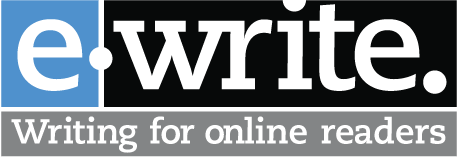


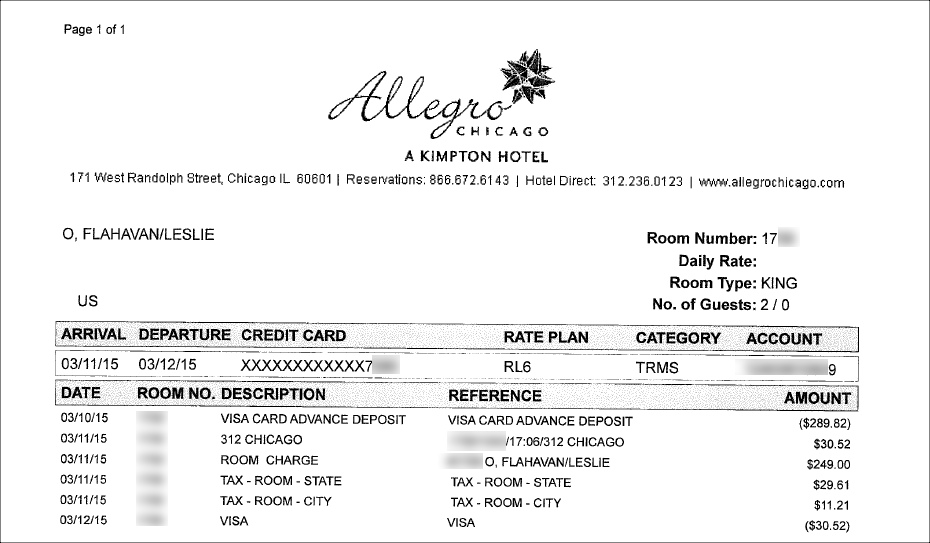
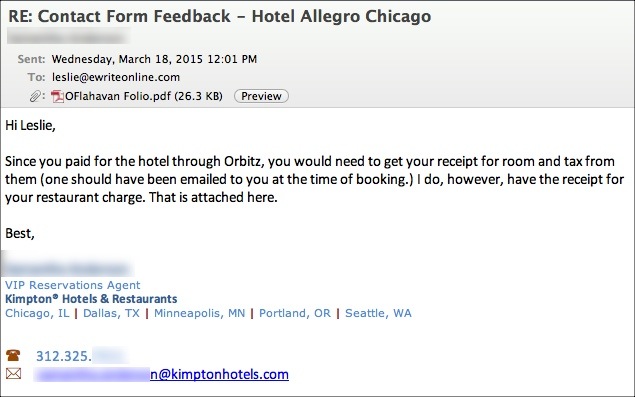
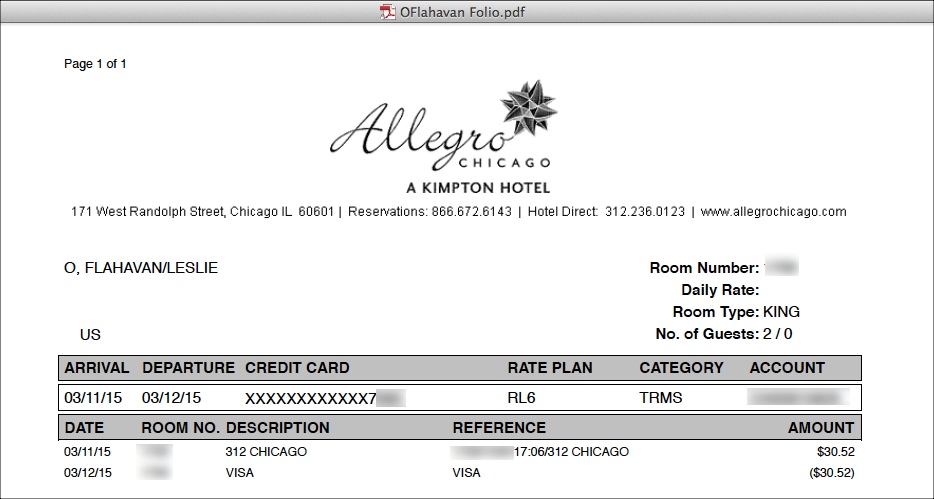
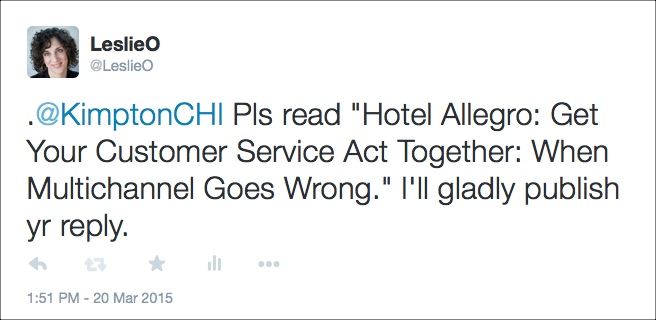


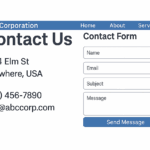

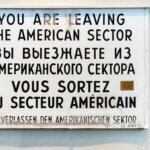
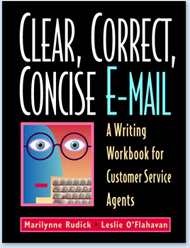
Hi Leslie! Excellent examples of a simple task with no clear standards. Klimpton teams need standards for courtesy, diplomacy and tact in addition to email writing. I hope they thank you them hire you.
It’s hard to believe that a relatively large hotel chain like Kimpton would not have a process or tool in place that would help its staff visualize when an inquiry has already been responded to!
Also, why would the second reservations agent think that you had booked and paid through Orbitz? My guesses are: a) she had your account information mixed up with someone else’s; or b) perhaps you (or someone with a similar name!) had previously booked a stay at the hotel through Orbitz, and she was looking at that information. In either case, it seems like human error that could have been avoided with a quick double check.
(By the way, I’m sure this was unintentional, but S _ _ _ _ _ _ a A _ _ _ _ _ _ n’s name is still visible at the top of the second to last screen shot.)
Hi, Ronna – Thanks very much for your comment. I really like the way you defined this event as “a simple task with no clear standards.” That’s the problem in a nutshell!
Hi, Alicia – First of all, thanks very much for letting me know that I’d left the Reservation Agent’s name visible in the screen shot. This was not intended, and I’ve corrected it! Like Ronna, above, you have made a very wise statement: “…it seems like human error that could have been avoided with a quick double check.” Thanks for reading and weighing in.
Great examples, Leslie!
It struck me that this all could have been avoided if the associate who checked you in had confirmed your email address.
This way, you would have received your folio automatically at the end of your stay and wouldn’t need all of this back and forth.
The front desk person gets my vote for customer service. While “Thank you for staying with us” would have been nice, it may also have been impossible. Some technology lacks a keyboard and the impersonal “untitled” may have been added by your software. Look, without fuss or worry he got the job done, sent the info quickly and correctly as follow-up to a helpful and polite phone conversation. He didn’t put his foot in his mouth with a terse or rude or argumentative reply. The other folk ought to be embarrassed. But he deserves a a big tip.